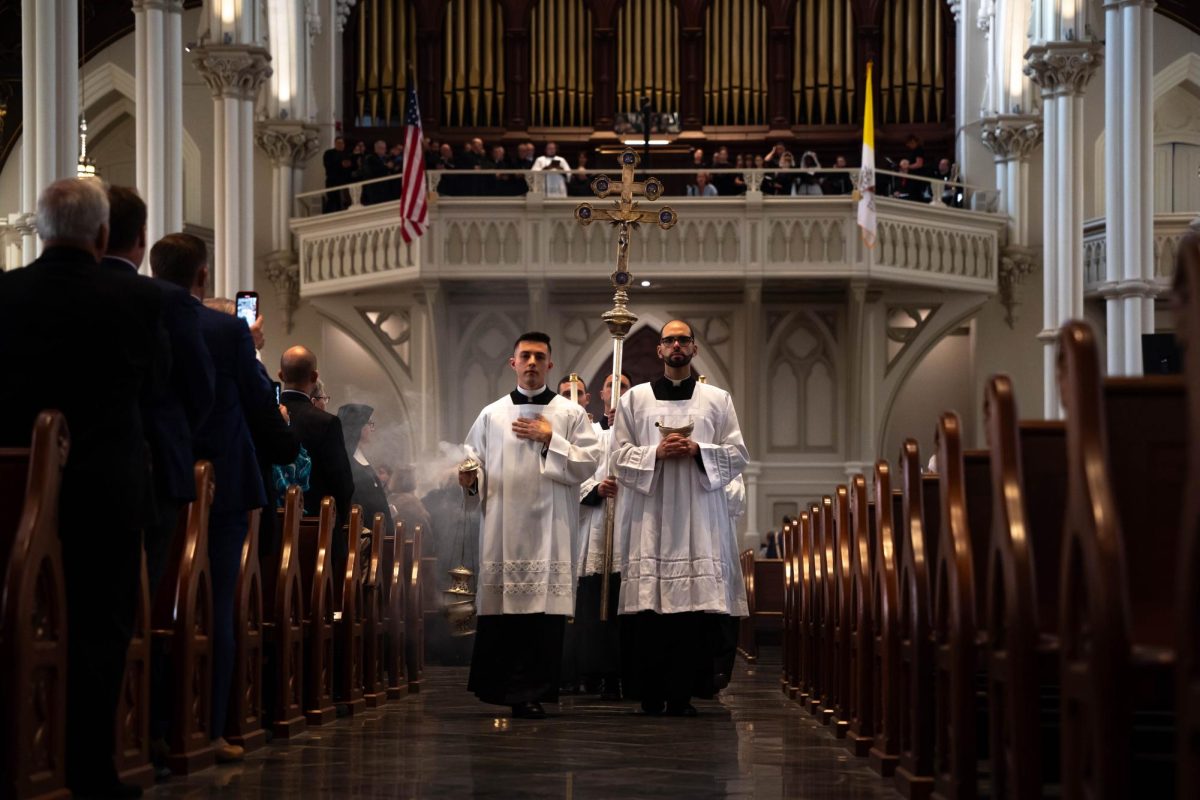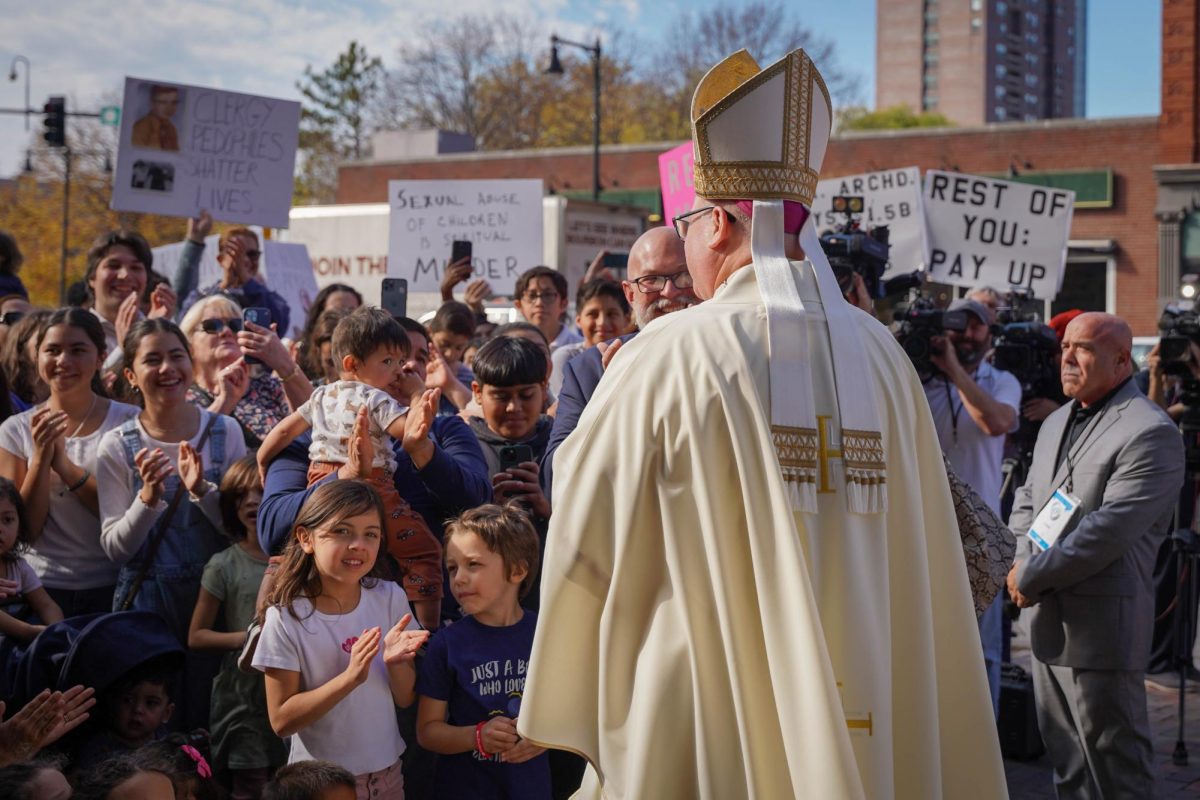Archbishop Richard Henning was installed as the seventh archbishop of the Archdiocese of Boston on Thursday. It was a bittersweet ceremony, shadowed by the church’s dark past.Â
More than 1,400 people, including clergy, religious figures, and prominent Boston community members, gathered at the Cathedral of the Holy Cross to celebrate what some called a surprising appointment.Â
Henning obtained the role after serving only a little over a year as Providence bishop, to a significantly smaller laity.Â
The event started with Henning’s ceremonial three knocks on the cathedral door and the greeting of the exiting archbishop, Cardinal Seán O’Malley. The two embraced each other in a hug and entered the building.Â
O’Malley’s 21-year tenure as archbishop was riddled with challenges following the clergy sexual abuse scandal in which hundreds of children were sexually abused by priests in the Boston archdiocese. These assaults occurred under O’Malley’s predecessor, Cardinal Bernard Law, in early 2002. The case—brought to national attention by the Boston Globe’s Spotlight investigation—created hundreds of lawsuits against the Boston Roman Catholic Church and encouraged others across the country to come forward against sexual abuse in their churches.Â
More than 150 priests in Boston were accused of sexual abuse, Cardinal Law resigned, and the church paid more than $95 million in settlements to victims.Â
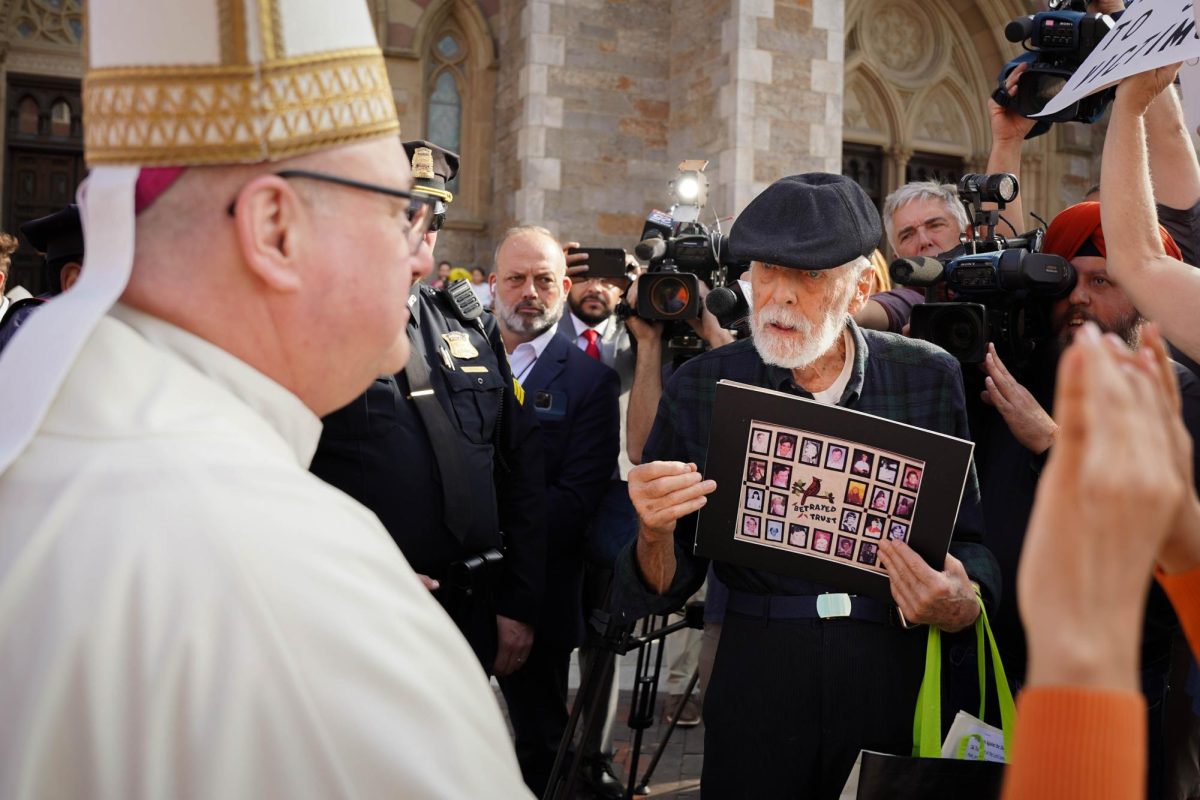
Outside the festive entrance to the cathedral in South End, a group of about two dozen individuals stood with signs urging for transparency and the completion of ongoing settlements.Â
As Henning prepared to enter the cathedral, Robert Hoatson, a former priest and survivor of sex abuse, called out to the incoming archbishop. “What about the survivors? Are you going to talk with us?” he shouted.Â
Henning turned and slowly paced toward the protesters.Â
One of the survivors asked Henning if he would be honest, transparent, and open as an archbishop. Â
“I’m very sorry, I have to learn. I have to listen,” answered Henning.Â
In an interview with The Beacon, Hoatson said he was surprised Henning approached the group.Â
“Normally, bishops and cardinals completely ignore us,” he said. Hoatson was not moved by the brief conversation, and added that it was “more of a public relations thing than coming from a real concern.”Â
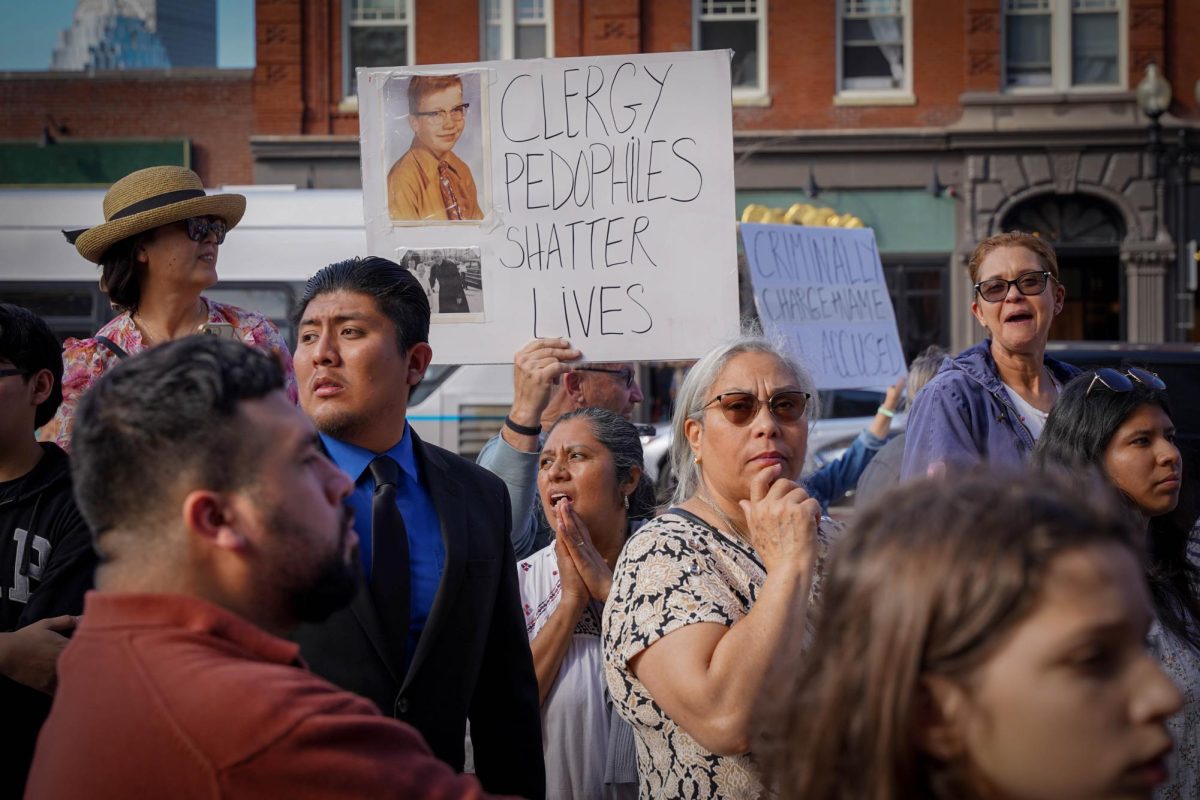
Hoatson is the co-founder of Road to Recovery, a support and advocacy organization that helps victims of sexual abuse of all kinds. He said they have been advocating for transparency by the church, which he said O’Malley did not provide.Â
While O’Malley swiftly settled many of the lawsuits, Hoatson and other critics said he was still withholding information, including omitting names from a list of clergy accused of sexual abuse.Â
Attorney Mitchell Garabedian, who represented more than 1,400 victims of sexual abuse and won the settlement against the Boston Roman Catholic Church, said Henning will “create a new layer of responsiveness.”Â
Garabedian told The Beacon that Henning “says the right things about clergy sexual abuse, but will not put into place any meaningful programs to protect children or to help victims heal.”Â
Behind the tall entrance of the cathedral, the crowd welcomed Henning in a roaring applause. French Cardinal Christophe Pierre thanked O’Malley for his service to the church and introduced Henning by reading the appointment letter, written by Pope Francis.Â
As part of an ancient ritual, members of the clergy inspected the letter for its authenticity. After their approval, Henning marched throughout the halls of the cathedral and joyfully presented the letter to the enthralled crowd. He was led to the “cathedra,” the seat of the archbishop, to officially assume the archbishop’s role.Â
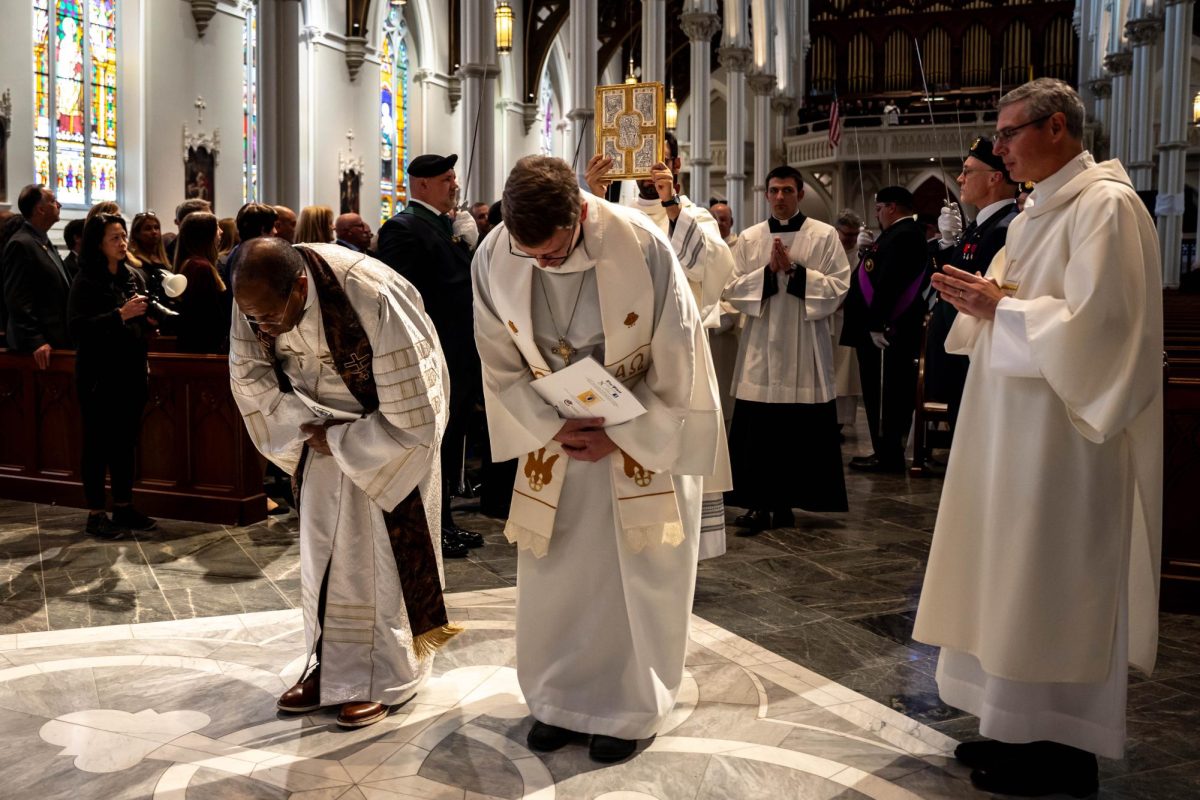
Henning addressed the church’s wrongdoings in his homily, his first speech as the archbishop.Â
“This church of Boston, it is, in a very real sense, a wounded church because of the failure to act with compassion and healing,” he said.Â
“We have seen over these decades a passionate effort to protect the vulnerable, but still we feel the weight of those wounds,” Henning added. “We owe a debt of gratitude to victims, survivors, who tell their story, for they have helped to protect new generations by their courage and by their prophetic truth-telling to us.”Â
Henning has confronted sexual abuse cases in his former role as an auxiliary bishop for the Diocese of Rockville Centre on Long Island N.Y. The Diocese is in an ongoing legal battle with about 650 abuse survivors, which has reached $320 million in settlements after the diocese filed for bankruptcy.Â
Even though the Boston archdiocese is under scrutiny, it continues to see an increase in school enrollment, and ongoing ordainment of new priests.Â
“Kids are still being abused right now,” said Hoatson.
Hoatson said that new cases arrive at his office every week, many of them say they were abused over 30 years ago. He said he recognizes a pattern in which survivors sometimes take years or decades to report sexual abuse.Â
Garabedian said he is advocating to remove the civil statute of limitations on sexual abuse cases. The law states that civil cases have a three-year time limit per case, which limits ongoing sexual abuse settlements.
 “We need to break the silence,” Hoatson added. “Silence is deadly.”
